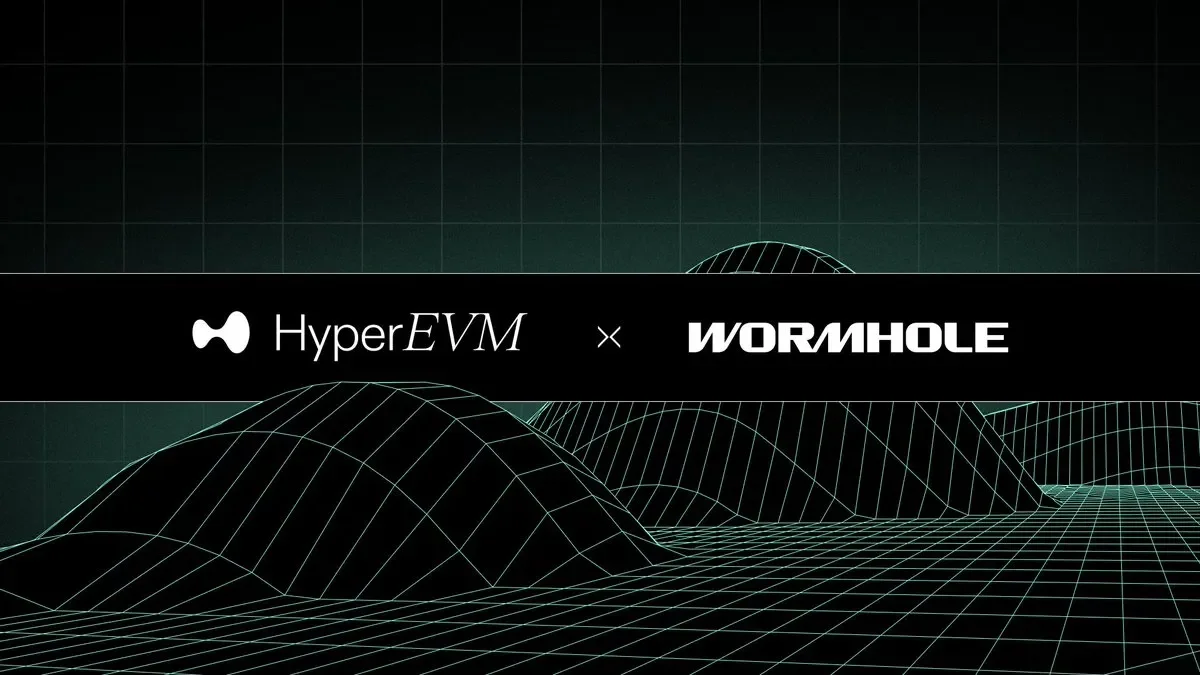Infinit Labs Live on HyperEVM, Lido Launches Lido Earn, Kamino Upgrades Liquidation Mechanisms, and many more...
Launches 🚀
Ondo Finance launched Ondo Global Markets on Ethereum, bringing tokenized access to over 100 U.S. stocks and ETFs with plans for further expansion. The platform introduces features such as 24/7 transfers, instant minting and redemption, and DeFi compatibility to address liquidity and pricing challenges. All assets are backed by U.S. securities held at registered broker-dealers with daily third-party verification and audits.
Support comes from major platforms like Bitget Wallet, Trust Wallet, OKX Wallet, and Chainlink, with plans to expand to BNB Chain, Solana, and Ondo Chain.
Parallel Protocol launched V3 with the introduction of USDp, a decentralized, overcollateralized stablecoin backed by a basket of assets and yield-bearing stablecoins. The upgrade brings modular stablecoin issuance, depeg protection, native saving assets, and cross-chain functionality.
USDp and its yield-bearing variant sUSDp are now live on Ethereum, Base, Sonic, Hyperliquid, and 12 additional chains.
Users can mint and burn USDp via the Parallelizer, with sUSDp offering native yield derived from the protocol’s backing assets.
Infinit Labs launched the V2 Public Beta on HyperEVM, introducing four new strategies across five protocols in a single workflow. The platform streamlines multi-step DeFi interactions through automated agents, covering leverage yield looping, multi-protocol airdrop farming, and delta-neutral yield farming.
Initial strategies include PT-kHYPE Looping 3x, HYPE Airdrop Points Farming, Delta-Neutral kHYPE, and cmETH Looping 3.7x.
Users can simulate and execute these strategies directly from their wallets, with plans to expand toward one-click execution.
USD1, WLFI’s stablecoin redeemable 1:1 for USD, has officially launched on Solana. Positioned as one of the fastest-growing stablecoins, USD1 integrates from day one with Raydium, Bonk, and Kamino Finance, bringing instant execution, deep liquidity, and scalable settlement to Solana’s fast-moving DeFi markets.
Ethereum Community Foundation launches BETH, a new token that represents burned ETH onchain. Each BETH is minted when ETH is permanently sent to a burn address, creating a verifiable and transferable proof-of-burn asset. While Ethereum already burns base fees under EIP-1559, BETH formalizes the process into a tokenized form, allowing developers to design applications around provable scarcity.
The 1:1 correspondence between ETH burned and BETH minted turns destruction into a composable financial primitive, opening use cases in governance, incentives, and DeFi.
Contract and code are live on Etherscan and GitHub.
Ethereum Community Foundation is different from Ethereum Foundation.
Lido introduced Lido Earn, a platform of stETH-powered vaults offering curated DeFi strategies through a single interface. The launch includes GG Vault, which aggregates strategies across protocols like Uniswap, Aave, Euler, and Balancer, and a Decentralized Validator Vault that uses Distributed Validator Technology to boost Ethereum validator decentralization.
Both vaults combine staking rewards with additional incentives from partner protocols.
Pyron launched its public testnet on FogoChain, opening access to lending and borrowing functions for all users. The release invites community participation to test and stress the platform’s core mechanisms.
This phase is aimed at identifying potential issues and refining performance ahead of mainnet deployment. Users can now engage directly through the Pyron application.
Twyne has launched on Ethereum mainnet, introducing a credit delegation protocol built atop Euler that solves inefficiencies in lending markets. Borrowers can rent idle borrowing power from lenders to boost liquidation thresholds, reducing the risk of early liquidations, while lenders earn additional APY from otherwise unused capital. At launch, supply caps are set at $30k for lenders and $150k for borrowers.
Updates 📰
Hyperliquid’s HyperEVM is now live on Wormhole, enabling transfers between HyperEVM and 40+ blockchains with native-to-native swaps powered by Wormhole and Mayan.
Raydium has listed USD1 as the official DEX venue on Solana, adding liquidity pairs with SOL and USDC. As part of the WLFI ecosystem, USD1 is redeemable 1:1 for the U.S. dollar and is designed for fast, scalable settlement in DeFi.
The launch positions Raydium as the primary liquidity hub for USD1 on Solana, with further integrations and WLFI App access set to follow.
Arcana Network has been acquired by Avail Project, integrating its chain abstraction stack into Avail Nexus for broader liquidity and multichain scalability. Arcana’s SDK and Wallet will continue under Nexus, partners remain supported, and the community will migrate to Avail channels.
$XAR holders can swap 1:4 into $AVAIL via Ethereum mainnet until February 27, 2026, with staking rewards available during the lock period.
Ethereum community members introduced BETH, a new token that represents burned ETH onchain. Each BETH is minted when ETH is permanently sent to a burn address, creating a verifiable and transferable proof-of-burn asset. While Ethereum already burns base fees under EIP-1559, BETH formalizes the process into a tokenized form, allowing developers to design applications around provable scarcity.
The 1:1 correspondence between ETH burned and BETH minted turns destruction into a composable financial primitive, opening use cases in governance, incentives, and DeFi. Contract and code are live on Etherscan and GitHub.
Puffer Finance launched pufETH on Linea, the Ethereum-aligned Layer 2. The move strengthens Ethereum’s restaking ecosystem, with incentives and further opportunities set to follow.
Kamino has rolled out major improvements to its Soft Liquidation System, cutting penalties by 90% to as low as 0.1% and introducing incremental unwinds of just 10%. Since 2023, Kamino Lend has processed $120M+ in liquidations with zero bad debt, reinforcing its reputation as Solana’s most robust and borrower-friendly credit system.
Sky Protocol reported using 5.5M USDS in August to buy back 73M SKY tokens, bringing the total spent on buybacks to nearly 75M USDS since the program’s launch. The decentralized buyback mechanism is governed by parameters set in the Sky Atlas and approved by community governance.
Liquity’s BOLD is now live on Hyperliquid EVM, with liquidity available on Curve between feUSD, BOLD, and USD₮0. LPs can also earn Felix points, which will soon be trackable across Hyperliquid and Mainnet.
Resolv Foundation completed another round of buybacks, purchasing 519,665 RESOLV for $75k at an average price of $0.14. This represents 90% of last week’s core protocol fees redirected into open-market buys.
Pareto has integrated Adaptive Frontier’s Credit Vault as a new yield source for $USP, joining Fasanara, Bastion, and Sky’s $USDS. The vault, which has delivered 12%+ APY with a perfect payment record, strengthens USP with institutional HFT and arbitrage strategies. For USP/sUSP holders, this means more stability, diversification, and dependable returns backed by real credit activity.
Solv Protocol has partnered with Chainlink to launch a Secure Exchange Rate feed for SolvBTC on Ethereum. Powered by Chainlink Proof of Reserve, the feed provides tamper-resistant redemption rates backed by verified BTC reserves, strengthening SolvBTC’s use as collateral in lending markets like Aave.
Solv also plans to integrate Chainlink’s Secure Mint feature to ensure all SolvBTC remains 1:1 backed.
Across has launched crosschain swaps via its new Swap API, merging bridge and swap into a single transaction. The upgrade introduces one-call execution, chain-agnostic composability, and abstracted logic for developers, with integrations from Uniswap Labs, 0xProject, and LiFi to provide unified DEX aggregation across chains.
Kamino has rolled out a Loan Dashboard upgrade, giving borrowers a full interest breakdown—debt paid, collateral yield earned, and net interest. Thanks to collateral rehypothecation, users can earn yield on collateral while borrowing, with some traders like BnwZ netting $78K since April while staying long SOL.
The Loan Analytics tab provides real-time insights, bringing TradFi-level analytics to Solana.
Phantom introduced new features for PSOL, enabling users to track staking rewards directly from the token page in the wallet. PSOL can now also be deployed on Kamino Finance for strategies such as lending, borrowing, and looping. The update aims to expand PSOL’s utility while reducing fees for stacking SOL.
These integrations position PSOL as a more versatile asset within the Solana ecosystem.
Trust Wallet announced support for tokenized stocks and ETFs, becoming the first self-custody wallet to provide direct access to real-world assets. The integration, enabled by Ondo Finance and 1inch on Ethereum, allows over 200 million users to buy and hold RWAs with USDC in the same way as other tokens. The feature is available on both mobile and browser extension versions of the wallet.
This marks a step toward broader accessibility of tokenized assets within self-custody environments.
Maple introduced syrupUSDC on Arbitrum, expanding its collateral options within the ecosystem. The token can be used on platforms such as Fluid, Morpho, and Euler, while also providing access to rewards from Arbitrum’s DRIP campaign and partner incentives.
Jupiter launched Airdrop Checker within its portfolio app, a tool designed to streamline tracking and claiming airdrops. The dashboard enables users to view eligible airdrops, upcoming distributions, and past claims in a single interface, aiming to address fragmented announcements and mitigate scam risks.
Access requires staking JUP, with larger stakes allowing more wallets to be scanned. The feature is also integrated with Jupiter Mobile, which provides Radar alerts for new airdrops.
Sei announced the launch of Seiscan, a blockchain explorer developed in collaboration with Etherscan. The platform brings Etherscan’s analytics, APIs, and user interface to Sei’s EVM chain. Designed to provide advanced data access and a familiar experience for developers and users.
Jito announced several updates to its $JTO tokenomics, starting with the completion of a $1 million buyback by the Cryptoeconomics subDAO. The subDAO plans to continue using TWAP buybacks while exploring automated mechanisms, such as auctions. The passage of JIP-24 doubles DAO revenue from the Jito Block Engine, raising fees to 6% and strengthening treasury inflows for tokenholder alignment.
A new $JTO Economic Hub has been launched to provide real-time data on protocol revenue, governance, and token performance. A
Ethena Labs announced that USDe is now supported on FalconX across spot, derivatives, and custody services. Institutional clients will be able to access OTC liquidity, use USDe as collateral in certain credit and derivatives transactions, and integrate it through FalconX’s infrastructure.
The partnership expands institutional access to USDe, currently the third-largest stablecoin by supply
Theo launched thBILL on Morpho, enabling borrowing and lending against its tokenized U.S. Treasury fund. The initial thBILL/USDC isolated market is live on Morpho’s Arbitrum deployment, with a second market planned for thBILL’s upcoming Pendle Principal Token.
Participants can earn yield while also accessing rewards from Arbitrum’s DRIP campaign.
Issues ⚠️
Cozy Finance was hacked for $427k on Optimism after a flaw in its redemption process let attackers complete withdrawals using another user’s redemption ID. Decurity reports the hacker exploited
completeWithdraw()andunwrapWrappedAssetViaConnectorForWithdraw, bridging stolen funds to Ethereum and Tornado Cash.The exploit could have drained even more, with a prior $677k redemption left untouched.
Cozy has been alerted, and affected users are advised to contact support.
A Venus Protocol user lost ~$27M to a phishing scam after unknowingly granting token approvals to an attacker. Venus immediately proposed an Emergency Vote to force-liquidate the exploiter’s position and recover the funds. The community passed the vote, and Venus successfully executed the liquidation, restoring user funds. As of 9:58 PM UTC, withdrawals and liquidations on Venus have resumed with operations fully restored.
Bunni released a post-mortem on the September 2 exploit, which resulted in losses of about $8.4 million across two pools: weETH/ETH on Unichain and USDC/USDT on Ethereum. The team attributed the issue to a rounding error that was safe in isolated use but became exploitable when combined with multiple operations, enabling an attacker to construct an atomic liquidity increase and sandwich attack.
Withdrawals have now been unpaused, though other functions remain suspended.
The team thanked auditors and community members for their support while work continues on securing and rebuilding the protocol.


